accessibility
See the following -
That Was The Open Access Week That Was
A round-up of some of the issues that got an airing during Open Access (OA) Week and in the days that followed, including more rumination on the implementation and implications of the RCUK OA policy, more bad (and some good) publisher behaviour, ideas for new directions in OA publishing and, finally, an important African perspective on the rumbling debate. Read More »
- Login to post comments
The Blockchain Is the New Google
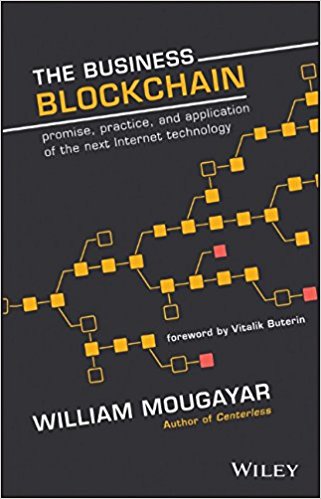 At its core, the blockchain is a technology that permanently records transactions in a way that cannot be later erased but can only be sequentially updated, in essence keeping a never-ending historical trail. This seemingly simple functional description has gargantuan implications. It is making us rethink the old ways of creating transactions, storing data, and moving assets, and that’s only the beginning. The blockchain cannot be described just as a revolution. It is a tsunami-like phenomenon, slowly advancing and gradually enveloping everything along its way by the force of its progression. Plainly, it is the second significant overlay on top of the Internet, just as the Web was that first layer back in 1990. That new layer is mostly about trust, so we could call it the trust layer.
At its core, the blockchain is a technology that permanently records transactions in a way that cannot be later erased but can only be sequentially updated, in essence keeping a never-ending historical trail. This seemingly simple functional description has gargantuan implications. It is making us rethink the old ways of creating transactions, storing data, and moving assets, and that’s only the beginning. The blockchain cannot be described just as a revolution. It is a tsunami-like phenomenon, slowly advancing and gradually enveloping everything along its way by the force of its progression. Plainly, it is the second significant overlay on top of the Internet, just as the Web was that first layer back in 1990. That new layer is mostly about trust, so we could call it the trust layer.
- Login to post comments
The Health Disparity of Information Access
Access to healthcare is underpinned in large part on a health consumer’s access to information about available health care services, their location, price, and if the patient is very fortunate to glean, quality. As people take on more responsibility for managing their health care utilization and financing in America, their access to information that is easy-to-find, clear, comprehensive and current is critical to personal and public health outcomes...
- Login to post comments
The HITECH Era – A Patient-Centered Perspective
We appreciate the recent perspectives published in the New England Journal of Medicine on the Health Information Technology for Economic and Clinical Health (HITECH) Act of 2009 and the positive impact that it and resulting health IT policies have had on U.S. health care.1,2 The perspectives highlighted the remarkable increase in adoption and use of electronic health records (EHRs) over the past eight years, thanks to the HITECH Act and to ONC’s and CMS’s implementation of it with major advice and help from the multi-stakeholder HIT Policy and Standards committees...
- Login to post comments
The Open Data Effect: Creating Optimistic Radicals At OKFest
I am Stephen Davenport, Director of Innovation at Development Gateway, and recently I attended my first Open Knowledge event, the OKFestival in Helsinki Finland. Read More »
- Login to post comments
Top 4 Care-Transition Benefits Of DoD, VA Joint iEHR
Caring for the nation's service members has never been easy. Providing world-class medical attention for the men and women of the Armed Forces from the front lines to the hospitals and clinics of the Veterans Administration (VA) is a daunting task that entails massive logistical and data hurdles. Read More »
- Login to post comments
U.S. Government Launches Code.gov to Showcase Its Open-Source Software
The White House today is announcing the launch of Code.gov, a website that shows off U.S. government open-source projects and offers relevant resources for government agencies. By launching this site the White House is hoping to improve public access to the government’s software and encourage the reuse of software across government agencies...
- Login to post comments
University System of Maryland Awards Mini-Grants to Increase the Use of Open Educational Resources
 The University System of Maryland’s (USM) William E. Kirwan Center for Academic Innovation announced 21 grantees who will receive support to adopt, adapt and scale the use of open educational resources (OER) through the Maryland Open Source Textbook (MOST) initiative High-impact OER Mini-Grant Program. The grants will be provided to faculty who are adopting, adapting or scaling the use of OER in Fall 2017 through high-enrollment courses where quality OER exists.
The University System of Maryland’s (USM) William E. Kirwan Center for Academic Innovation announced 21 grantees who will receive support to adopt, adapt and scale the use of open educational resources (OER) through the Maryland Open Source Textbook (MOST) initiative High-impact OER Mini-Grant Program. The grants will be provided to faculty who are adopting, adapting or scaling the use of OER in Fall 2017 through high-enrollment courses where quality OER exists.
- Login to post comments
Usability And Accessibility Start With Open Communication
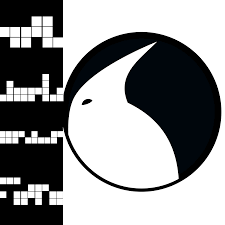 Amazing though it may seem, we each experience the world differently. That's one reality with over 6 billion interpretations. Many of us use computers to broaden our experience of the world, but a computer is part of reality and so if you experience reality without, for instance, vision or sound, then you also experience a computer without vision or sound (or whatever your unique experience might be). As humans, we don't quite have the power to experience the world the way somebody does. We can mimic some of the surface-level things (I can close my eyes to mimic blindness, for example) but it's only an imitation, without history, context, or urgency. As a result of this complexity, we humans design things primarily for ourselves, based on the way we experience the world. That can be frustrating, from an engineering and design viewpoint, because even when you intend to be inclusive, you end up forgetting something "obvious" and essential, or the solution to one problem introduces a problem for someone else, and so on. What's an open source enthusiast, or programmer, or architect, or teacher, or just everyday hacker, supposed to do to make software, communities, and processes accessible?
Amazing though it may seem, we each experience the world differently. That's one reality with over 6 billion interpretations. Many of us use computers to broaden our experience of the world, but a computer is part of reality and so if you experience reality without, for instance, vision or sound, then you also experience a computer without vision or sound (or whatever your unique experience might be). As humans, we don't quite have the power to experience the world the way somebody does. We can mimic some of the surface-level things (I can close my eyes to mimic blindness, for example) but it's only an imitation, without history, context, or urgency. As a result of this complexity, we humans design things primarily for ourselves, based on the way we experience the world. That can be frustrating, from an engineering and design viewpoint, because even when you intend to be inclusive, you end up forgetting something "obvious" and essential, or the solution to one problem introduces a problem for someone else, and so on. What's an open source enthusiast, or programmer, or architect, or teacher, or just everyday hacker, supposed to do to make software, communities, and processes accessible?
- Login to post comments
UX Maturity: An Interview with Simon Norris
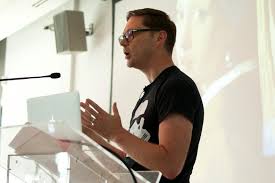 Simon Norris founded Nomensa in 2001 with the strong belief that the internet should be more inclusive and work more effectively. That belief is one that we at UX Booth can definitely get behind! Just like our readers, Norris believes that digital technology should be both usable and accessible, so much so that he coined the term “humanizing technology” to refer to that need...we’re excited to chat with him and learn more about human psychology, humanized technology, and his experience in the field of UX...
Simon Norris founded Nomensa in 2001 with the strong belief that the internet should be more inclusive and work more effectively. That belief is one that we at UX Booth can definitely get behind! Just like our readers, Norris believes that digital technology should be both usable and accessible, so much so that he coined the term “humanizing technology” to refer to that need...we’re excited to chat with him and learn more about human psychology, humanized technology, and his experience in the field of UX...
- Login to post comments
Why Keep Open States Going?
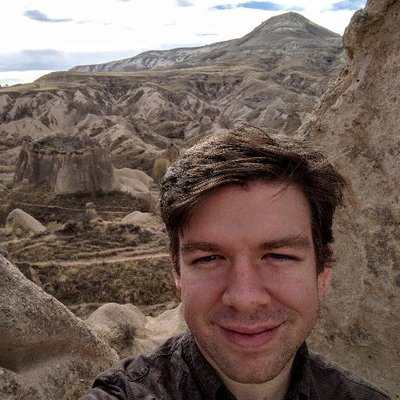 We announced earlier this month that Open States—a project covered on Opensource.com in 2011—is now being maintained by the original creators of the project, a community of Sunlight Foundation alumni and other volunteers. After a year of scant staffing culminating in the closure of Sunlight Labs, we expect that getting Open States fully operational again will take a significant effort, and we know from experience that maintaining the menagerie of scrapers into the future isn't easy either. (That's why we're looking for volunteers and donations.) So why, despite the challenges, are we taking on this project? Why do we think that Open States matters so much? And where do we plan on taking this tool going forward?...
We announced earlier this month that Open States—a project covered on Opensource.com in 2011—is now being maintained by the original creators of the project, a community of Sunlight Foundation alumni and other volunteers. After a year of scant staffing culminating in the closure of Sunlight Labs, we expect that getting Open States fully operational again will take a significant effort, and we know from experience that maintaining the menagerie of scrapers into the future isn't easy either. (That's why we're looking for volunteers and donations.) So why, despite the challenges, are we taking on this project? Why do we think that Open States matters so much? And where do we plan on taking this tool going forward?...
- Login to post comments
Why Open Access Makes No Sense
There can be no such thing as free access to academic research, says Robin Osborne in Debating Open Access essays – research is a process that universities teach and charge for Read More »
- Login to post comments
Why Open Drug Discovery Needs Four Simple Rules For Licensing Data And Models
As we see a future of increased database integration, the licensing of the data may be a hurdle that hampers progress and usability. We have formulated four rules for licensing data for open drug discovery, which we propose as a starting point for consideration by databases and for their ultimate adoption. Read More »
- Login to post comments
Why Your Teams May Be Failing at the Collaboration Game
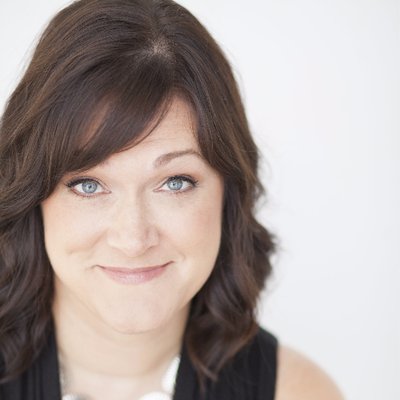 When we think about skills needed to build open structures and establish open mindsets, collaboration jumps to mind immediately. In order to collaborate effectively, communication—or rather, clear communication—is imperative to making it all work. Communication can be defined as a transfer of information from one space or person to another—but it can look like dialogue, conflict resolution, listening skills, or even a knowledge commons. In open organizations, we look for timely transfers of information to all members so that they may do their jobs effectively and efficiently...
When we think about skills needed to build open structures and establish open mindsets, collaboration jumps to mind immediately. In order to collaborate effectively, communication—or rather, clear communication—is imperative to making it all work. Communication can be defined as a transfer of information from one space or person to another—but it can look like dialogue, conflict resolution, listening skills, or even a knowledge commons. In open organizations, we look for timely transfers of information to all members so that they may do their jobs effectively and efficiently...
- Login to post comments
Will Trump Administration Back Rules Treating Health Insurance as a Utility, Not Luxury?
On June 14, 2016 a Federal Court ruled that broadband internet is as essential to American as phones, electricity, water and sewer systems and should be available to all Americans as a utility, rather than a luxury that doesn’t need close government supervision. In the United States, public utilities are often natural monopolies because the infrastructure required producing and delivering a product such as electricity or water is very expensive to build and maintain. As a result, they are often government monopolies, or if privately owned, the sectors are specially regulated by a public utilities commission which severely limits the profits for the private utility company and the associated costs passed on to consumers of that utility...
- Login to post comments